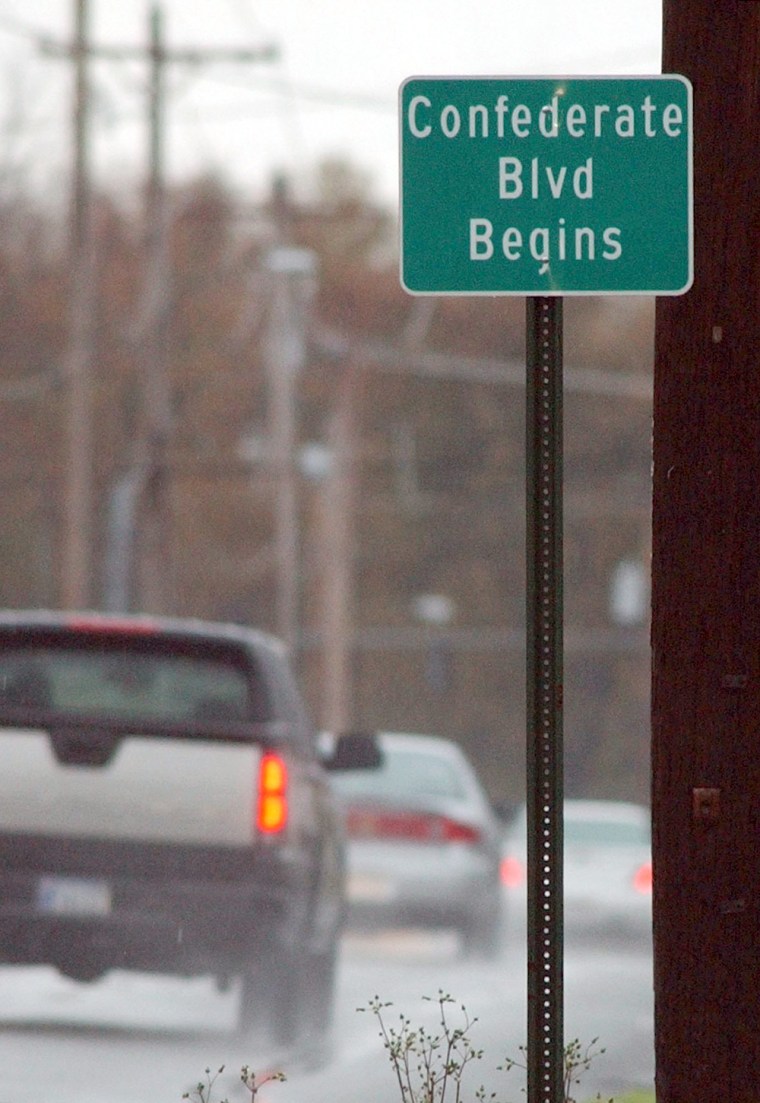From renaming Confederate Boulevard in Arkansas to shrinking “Heart of Dixie” on Alabama’s license plate, the South is slowly erasing reminders of its Civil War past for fear of offending tourists and scaring off business.
“Business people and tourists don’t know what to think about slavery, elitism, the Civil War,” says Ted Ownby of the Center for the Study of Southern Culture at the University of Mississippi. “So one way is to give them an easy out. We’ll change the name of this building, this street, change this display.”
Over the past few years, more and more references to the Confederacy seem to be vanishing around the South. At Vanderbilt University in Nashville, Tenn., last year, the school dropped “Confederate” from Confederate Memorial Hall. The University of Mississippi dropped “Colonel Rebel” as its on-field mascot. Georgia downsized, and then eventually removed, a Confederate symbol from its state flag. And South Carolina’s NAACP has been boycotting business in that state since 2000 in hopes of removing the Confederate flag from the Statehouse grounds.
In Little Rock, the switch from Confederate Boulevard to Springer Boulevard was made in November, just before the opening of Bill Clinton’s presidential library.
The ‘Dixie’ name recedes
John Shelton Reed, a professor emeritus at the University of North Carolina’s Center for the Study of the American South, said the trend is clear, and business interests coupled with concern from the black community are the catalysts.
“Businesses named Dixie this and Dixie that, there are fewer of them than there used to be,” Shelton said. “If you’re a businessperson, why do you want a name that’s going to raise anybody’s hackles?”
Jim Dailey, the mayor of Little Rock, said the Confederate Boulevard sign was changed after city officials noted that it was often the first thing visitors saw after arriving at the Little Rock airport. With the world’s eyes on the opening of the Clinton Library, and with millions of tourism dollars at stake, the city opted for a different first impression.
Some would beg to differ
Ron Casteel, chief of staff for the Sons of Confederate Veterans, called the removal of rebel reminders a “disgusting trend.”
“We honor everyone else’s traditions and heritage. Why should we discriminate against Confederate heritage?” Casteel said. “It is now a politically correct thing to do to erase Confederate symbols, Confederate street names, anything that is attached to something that is very much a part of political history.”
Larry Griffin, a sociology and history professor at the University of North Carolina, argued that these symbols should not be erased, just placed in context.
“We don’t want to rewrite the past, so moments are silenced or hidden,” he said. “The past needs to be observed and engaged, warts and all. There are places that would be proper sites for these kinds of symbols. It could be in a museum, in a national park or any of the Civil War battlefields.”
